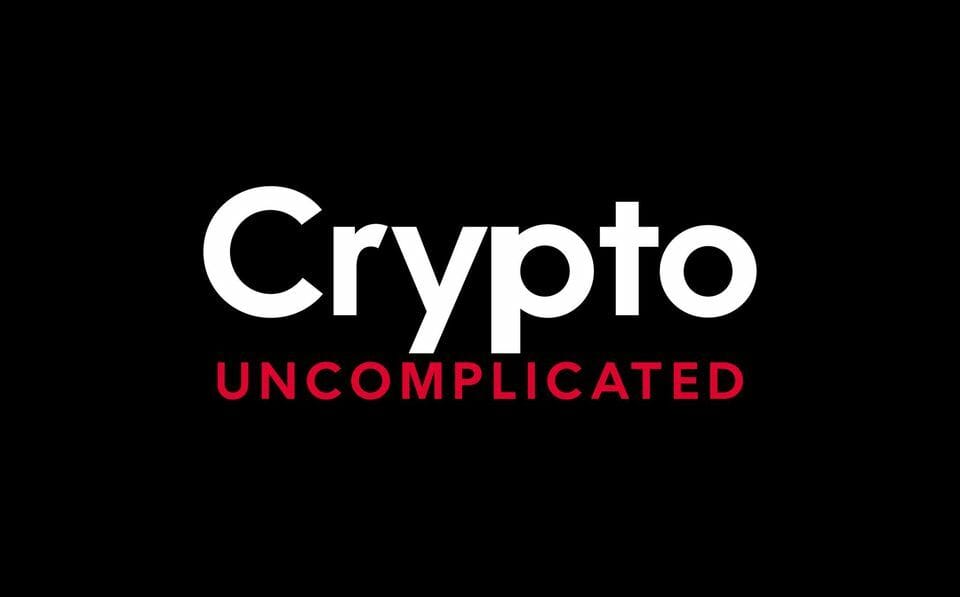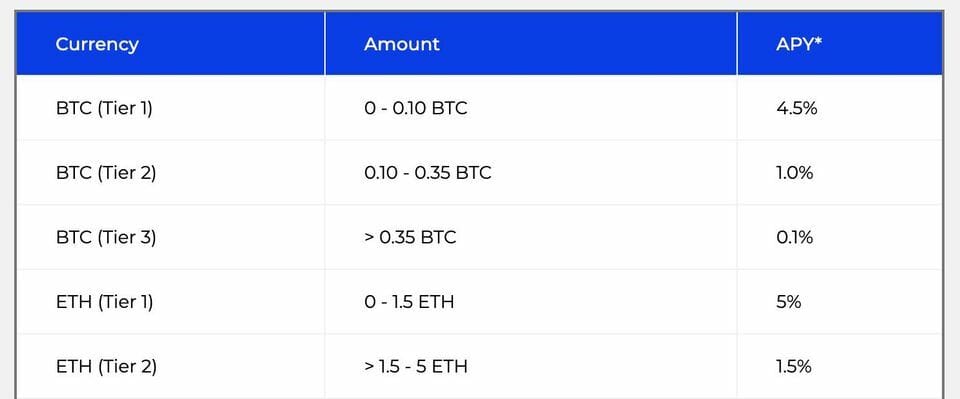- Crypto Uncomplicated
- Posts
- Why the SEC's record $100 million crypto fine could be a rare win-win-win
Why the SEC's record $100 million crypto fine could be a rare win-win-win

Imagine you’re a child in someone’s house.
You want to behave and play by the rules, but you're not entirely sure what the rules are in this house — let alone which parent is in charge. Now, imagine that even the parents in this house are kind of confused as to who is supposed to be in charge as well.
That’s basically been the story of crypto companies dealing with U.S. regulators over the past few years: the government's alphabet soup of financial regulators (The Securities and Exchange Commission, the Commodity Futures Trading Commission, the Federal Reserve, and the Office of the Comptroller of the Currency just to name a few) all trying to figure out who's in charge of what exactly, and how to make the new crypto kids play nice.
If you think that metaphor is an oversimplification, it's not. It's also somewhat borrowed from one of the funnier moments of recent congressional crypto hearings: when Senator John Kennedy from Louisiana asked SEC Chair Gary Gensler if he considered himself to be the "daddy" of the companies he regulates. Chair Gensler laughed at the question almost as quickly as he uttered a confused, "No."
The metaphor also raises a question: if you are the SEC and you're supposed to be the parent in the room who is establishing the rules that are meant to protect investors and consumers, how do you enforce them? Crypto may be new, but it doesn't take a law degree to know that it's probably a good thing to ensure that crypto companies should not be 1) defrauding average Americans, or 2) misrepresenting investment risks to anyone.
If you're the new kid on the block in this metaphor (the crypto companies) you also similarly have a question to answer: how do we figure out what is and what is not off limits? Presumably, you could play it safe and just sit in the corner of this house full of parents and never move. Or, as children more often do, you could just start doing things and see if you get punished.
In the end, you arrive at the same point. Rules eventually get established, and hopefully both the parents and the kids can be happy with the order they've agreed to. Of course, over the course of that learning process, some kids are going to have to learn a lesson. And if you're a parent trying to teach these kids a lesson, sometimes it helps to find the biggest kids that stand out and teach 'em a lesson in front of God and everybody.
This week, that big kid got spanked. Spanked $100 million times.
Crypto lending platform BlockFi agrees to $100 million settlement, the largest-ever SEC fine in a crypto case
For those who may not have heard the name, BlockFi is a centralized crypto lending platform. The company effectively functions like a digital bank in that it offers customers the ability to "deposit" crypto assets (like bitcoin, ether, or stablecoins) in order to earn interest on those assets. BlockFi, in turn, also makes its money by issuing loans to other customers and charging them interest. If all goes well, it works great for everyone.
As I covered for Yahoo Finance at the beginning of last year in a conversation with BlockFi co-founder Flori Marquez, BlockFi offers incredible interest rates for savers at a time where traditional banks do not. More specifically, as I wrote at the time, you could earn a little over 8.5% in interest on the Gemini dollar, the "digital dollar" stablecoin introduced by the Winklevoss twins’ regulated and audited New York trust company Gemini.
More than 8.5% interest! At a time when the average interest paid by banks was 0.07%. That's pretty cool.

BlockFi's published interest rates show the company offers 5% interest on up to 1.5 ether deposited.
Now, yes, it's true that BlockFi accounts are not FDIC insured like traditional bank accounts (those provide protection on up to $250,000 in deposits if a bank runs into serious problems.) But as far as risk goes, so long as BlockFi doesn't go bust, what we're discussing is the opportunity to earn about 123x more in interest than what traditional banks are paying.
Not surprisingly, BlockFi signed up hundreds of thousands of users (full disclosure: I am still one of them.)
Back to the parent in the room
Now, if you're the SEC and you're in charge of protecting consumers against certain risks — or at the very least making sure companies are up-front and honest about the risks their customers should consider — you might have some questions.
Mainly, what are the chances that a company like BlockFi could get into an issue if people aren't able to pay back their loans? Yes, crypto is supposed to be solving a lot of the old problems in traditional banking, but as far as centralized lending platforms go it's not hard to see where you could easily fall into a potential repeat of the 2008 financial crisis. Certain bank's exposure to supposedly safe mortgage-backed securities looked fine until it wasn't.
Second, even in establishing rules for new sectors or currencies, the laws have been fairly clear since the 1930's in laying out how anyone offering a security, or an investment contract, needs to register with the SEC.
Crypto companies like BlockFi and Coinbase have long argued that they are not technically issuing securities and therefore don't fall under the jurisdiction of the SEC. But that has been heavily disputed. In fact, when Coinbase wanted to introduce a similar feature similar to what BlockFi was offering in order to let their customers start earning interest as well, the SEC outright told Coinbase it would sue the company.
That led to an awkward back-and-forth — in which Coinbase CEO Brian Armstrong basically alleged the SEC was up to something "sketchy" — before deciding to abandon plans to move forward with a similar Coinbase lending product. No dice.
How the largest-ever crypto fine by the SEC becomes a win-win (-win?)
In comparing Coinbase's experience with BlockFi's experience in interacting with the "Daddy" in the room, it would be easy to arrive at the old question of whether it's better to ask for forgiveness or permission.
If you only read headlines focusing on the record $100 settlement, in which BlockFi agreed to pay $50 million in penalties and $50 million to 32 states in order to settle similar state-level issues, it might be easy to say they should have asked for permission.
If you consider the additional part of the settlement, in which BlockFi admits to no wrongdoing and gets to continue operating its structure of paying interest to existing customers so long as they register with the SEC, it might be easier to say it was wise to ask for forgiveness. As part of the settlement, BlockFi also won't be able to sign up new customers in the U.S. for its interest earning accounts until it registers with the SEC and wins the approval of its new structure for customers (which is not necessarily guaranteed.)
Still though, it's worth noting that due to the fact BlockFi has grown so quickly the company was able to raise more than $300 million from investors last March at a valuation of $3 billion. That's a lot more exciting than just being a kid who could've sat in the corner waiting for the parents to decide the rules.
And for the parent making the rules, the SEC also gets to count a win for showing the industry (and the rest of the kids) what the rules are and who is in charge. In announcing the settlement, SEC Chair Gary Gensler made it pretty clear that other crypto lending platforms should also fall in line.
“Today’s settlement makes clear that crypto markets must comply with time-tested securities laws,” he said. “It further demonstrates the commission’s willingness to work with crypto platforms to determine how they can come into compliance with those laws.”
That seems like a win-win. Especially when the prior scenario with Coinbase was just the SEC shutting down the idea of any crypto interest account for customers. In a way, BlockFi has taken the spanking that has now informed the whole schoolyard. (Alright that was the last spanking metaphor - parents can't spank kids anymore can they?)
Finally, when you consider what BlockFi's Flori Marquez told me about how the battle with regulators was going a couple months ago, it becomes even harder to not see this as a win-win. As she told me then, "regulatory clarity will allow many companies that are building in crypto to build with more clarity, which will help us hopefully be safer for the consumer in the long-run, and it will also help with that mainstream adoption because consumers will feel safer knowing regulators are also in the space.”
One of the risks I always flag to friends or bring up in interviews about putting money into any centralized lending platform like BlockFi is counterparty risk, or the risk that one transacting party might not be able to meet its obligations. Loans going into default at a massive scale could quickly cause obvious problems in paying interest a lending platform may have promised to customers. Worse yet, customer "deposits" could be next in danger if things were ever to get real bad.
In theory, you'd suspect any lending platform or bank would be extra careful with getting risks correct to avoid that. Then again, that was the assumption in 2008 and we all saw how that played out. From a regulatory perspective, at least making sure companies are upfront about risks seems fundamentally important.
In its order against BlockFi, the SEC alleged that the company misrepresented some risks for customers. Mainly, that it may have said some loans were less risky than they actually were:
BlockFi’s statement materially overstated the degree to which it secured protection from defaults by institutional borrowers through collateral
As BlockFi and other crypto lending platforms get brought into the regulatory fold, it's hard to see how it doesn't lead to improved transparency. In the end, that's all a lot of people are looking for. Customers are getting more transparency when they are being presented an honest assessment of risks. Crypto companies are getting more of that when they finally learn what is and what is not off limits. And regulators get more of it when companies feel comfortable in approaching them about what they are actually up to without fear of getting completely shut down.
That's a pretty exciting development. We're just getting started.